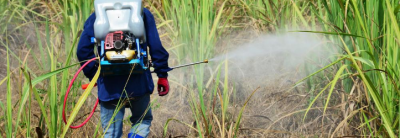Sri Lanka’s Newly Elected President Bans Glyphosate (Monsanto Roundup) – Deadly Chronic Kidney Disease Increased 5-Fold

As the US government comes up with ever more creative stall tactics, Sri Lanka’s newly elected president, Maithripala Sirisena, has announced that the import of Monsanto’s favorite killing-tool, glyphosate, will no longer be allowed in the country.
Sirisena is a farmer and ex health minister, and blames glyphosate for rising rates of chronic kidney disease (CKD) throughout the Sri Lankan farming community.
Not only has the Sri Lankan president banned glyphosate herbicide, but stocks of already-imported Roundup will be stopped.
CKD has already affected 15% of people working in the northern part of Sri Lanka which amounts to around 400,000 patients and a death count, directly related to Monsanto’s chemicals, of 20,000.
This may seem shocking, but these numbers simply relay a truth that another study previously stated: that kidney disease is five times higher in countries that are over-run with glyphosate chemicals. Though this is due in part to the fact that farmers in these countries often where very little in the way of protection when they are spraying Roundup on their rice fields, there is no excuse for such an abominable number of preventable deaths.
If you aren’t convinced of the reality of this problem, there are two short documentaries: “Mystery in the Fields” and “Cycle of Death,” both of which can shed light on this unfortunate phenomenon happening throughout the world.
Sri Lanka has already banned the sale of glyphosate herbicides in March of 2014, but the decision was overturned in May 2014 after a review.
The decision by Sri Lanka’s new president to ban glyphosate this time around is expected to stand.
Sri Lanka now becomes the second country to fully ban the sale of glyphosate herbicides. Bermuda has also issued a temporary ban on glyphosate imports and is holding a review to determine whether or not to make it permanent.
Follow us: @naturalsociety on Twitter | NaturalSociety on Facebook

